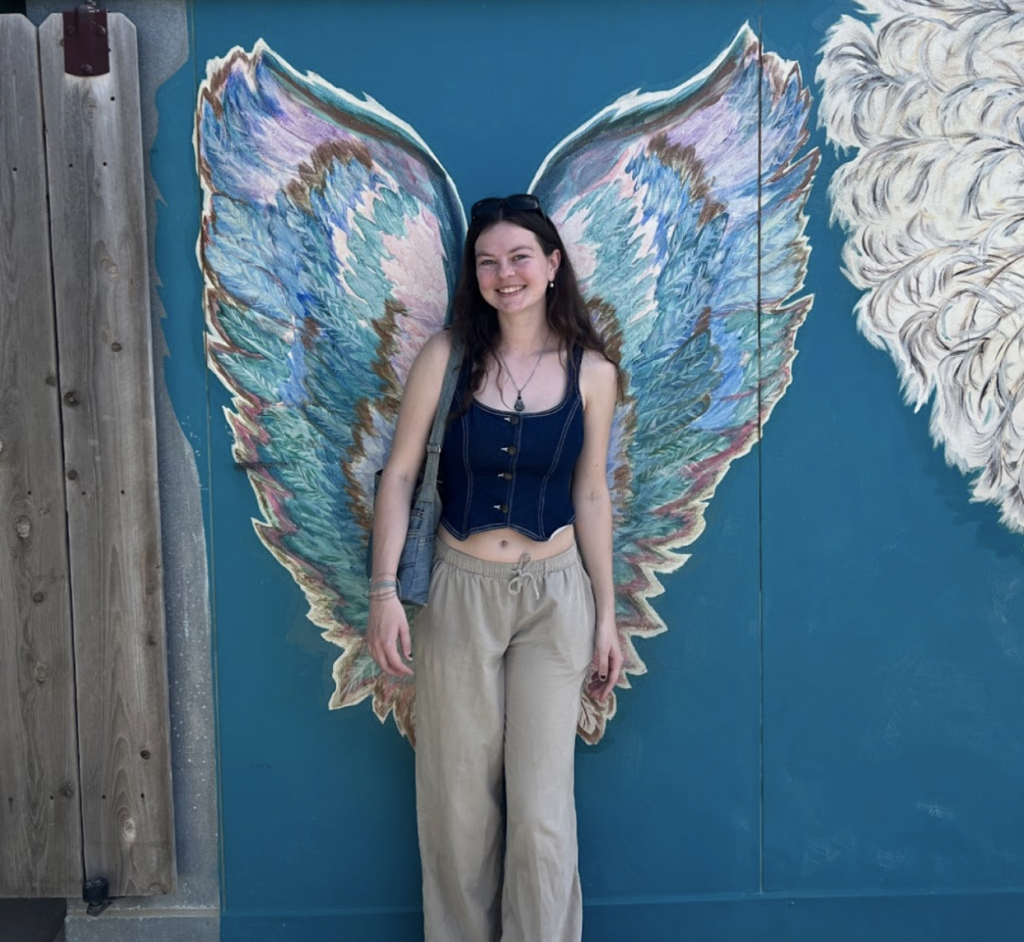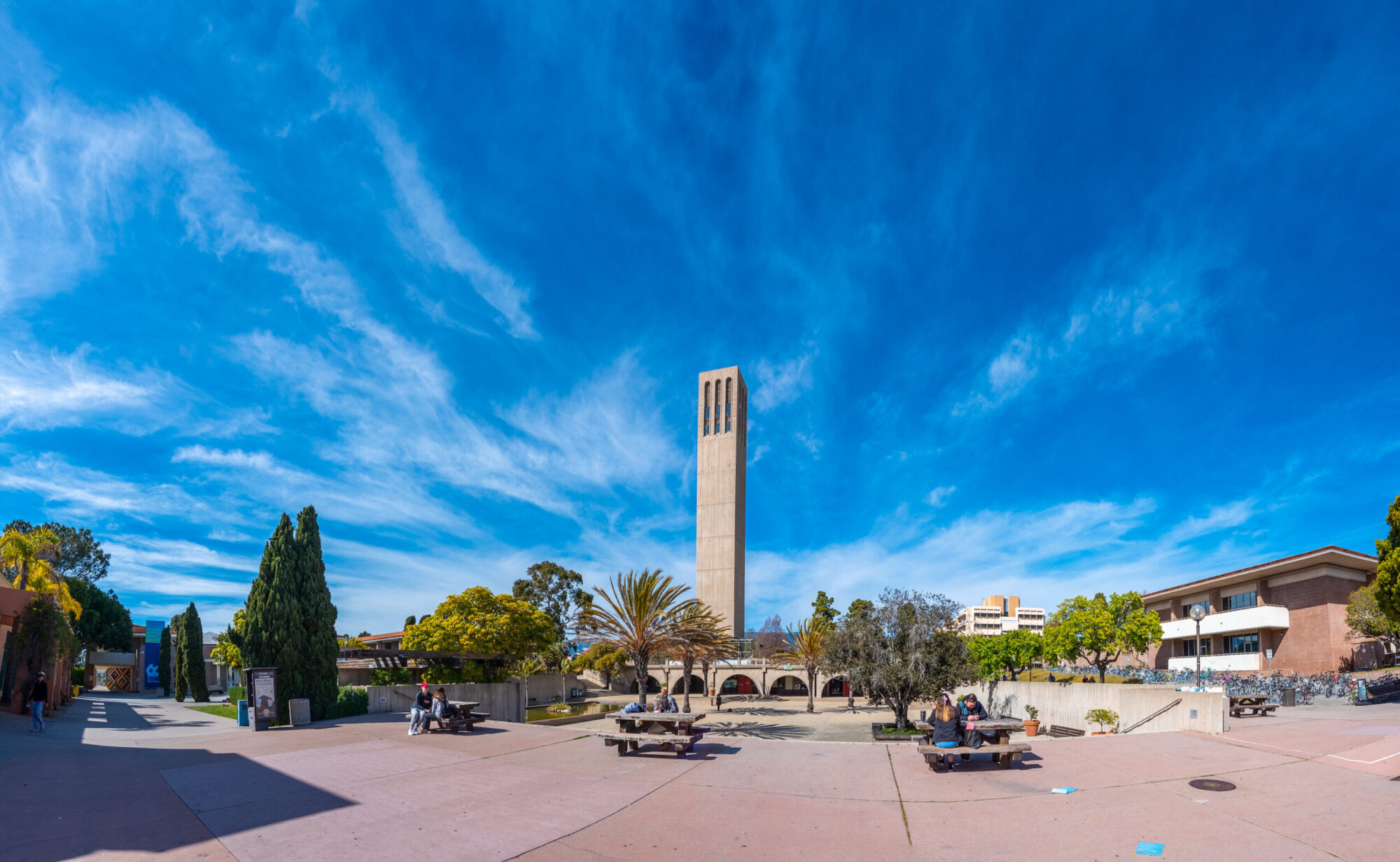UGH: A Newsletter (Spring 2025).
History Here
- History Club weekly meeting – every Tuesday at 7pm in HSSB 4020. This Tuesday, History Club welcomes us back for spring quarter for a pizza party social. Make sure to follow @ucsbhistoryclub to stay updated on their events!
- We also have some exciting news to share: UCSB History sweatshirts are now available for purchase! Make sure to get your order in here before April 30th.
- California Missionary Performance Evaluations, 1817-1820 at the Santa Barbara Museum of Natural History Farrand Auditorium. “In this free public lecture presented by the Santa Barbara County Archaeological Society, UCSB Department of Anthropology graduate student Elisabeth Rareshide, M.A., will share insights from two reports currently housed in the Santa Bárbara Mission Archive-Library. Fr. Vicente Francisco de Sarrı́a’s 1817 report and Fr. Mariano Payeras’ 1820 report provide a basis for evaluating the work of missionary friars in the years just prior to Mexican independence from Spain.” April 7th, 7-8:30 pm.
- Lavender Coast: LGBTQ+ Histories from Santa Barbara and the UCSB campus at the Glassbox Gallery. “As part of our pride week celebration, join us for a museum-style exhibition of LGBTQ+ history here at the UCSB campus and the Santa Barbara Area.” April 7- 12, 9 am-5 pm.
- Judith Zeitlin | The Making of Ghost Village: Across the Borders of Life and Death, Scholarship and Opera in HSSB 6020. “This talk will take you into the process of creating a new, experimental opera based on a historical ghost story from Pu Songling’s seventeenth-century Chinese masterpiece, Liaozhao’s Strange Tales (Liaozhai zhiyi). Entitled Ghost Village, the opera is a creative collaboration between Judith Zeitlin, as scholar and English language librettist, and the composer Yao Chen, a China-based, Chicago-trained professor of composition at the Central Conservatory of Music in Beijing.” April 8th, 4-6 pm.
- Mental Health is Colonized: The Case of Palestine in Girvetz 2320. “Dr. Walid Afifi argues that the dominant western, individually-focused conceptualization of mental health (and resilience) ignores the structural determinants that shape Palestinian lives and, as such, is part of an infrastructure of social scientific knowledge that helps maintain settler-colonial conditions.” April 9th, 5 pm.
- CWC Global: Japanese Paper Films at Pollock Theater. “For this special screening, we present a curated collection of digitized Japanese paper films in a wide range of genres: live action documentary, abridged versions of live action Japanese and international feature films, and lots of anime. These animated films give us a peek into the origins of contemporary anime with films that celebrate samurais, rōnin, and ninjas, as well as fairytales about Shinto gods and mythological creatures. The program includes both silent and sound paper films, with each film running between 1 and 4 minutes. For those films without a soundtrack, Duo Yumeno (made up of koto player Yoko Reikano Kimura and cellist Hikaru Tamaki) will provide live musical accompaniment that blends traditional Japanese music with Western classical influences.” April 12th, 2-4:30 pm.
Unboxed S3. e4 – listen on Spotify.
The Latest
Our Fall 2024 issue included works by nine incredible writers! In “The Latest,” we celebrate them and all of their hard work. Today, we are highlighting the work of Pritish Das! Pritish Das is a graduate of Kenyon College with a Bachelor’s Degree in Philosophy, and is currently a Master’s student in the University of Chicago’s Political Science program. Pritish’s paper is titled “Toward a Sociogenic Understanding of Reparations: An Analysis of Japanese American Reparations and Yuri Kochiyama’s Revolutionary Praxis”
In Pritish’s own words, “This paper comprises two parts: in the first, I analyze how the state utilizes reparations to perpetuate their antiblack and imperialist violence. I closely read Japanese American reparation testimonies, testimony guidelines, and other documents to argue for Japanese American reparations as a site for not representing truth but producing it. Drawing primarily on the works of The Honorable Sylvia Wynter, I show that the state imposes a temporal structure on Japanese Americans’ experiences to engulf them within the surrounding antiblack and neoliberal model minority myth. My paper then turns to the praxis and speeches of Yuri Kochiyama to understand modes of experiencing that contest the state’s imposition. I argue that reparations and experiencing the past are not temporally stable, and by reading her diary entries to her biography, I demonstrate that her experience of the past shifts throughout her growing interaction with revolutionary politics. I trace Kochiyama’s subjectivity across various social and political spaces, such as the black nationalist Republic of New Afrika and the Asian Americans for Action. By analyzing Kochiyama’s reparations testimony and how she contests the state’s imposition of time and the model minority myth, I argue that Kochiyama can help reimagine reparations beyond the state’s time.”
Read Pritish’s full paper here: Toward a Sociogenic Understanding of Reparations: An Analysis of Japanese American Reparations and Yuri Kochiyama’s Revolutionary Praxis
Honors Course Crashing
UCSB is home to an incredible history department, and these students are hard at work on their History Honors Theses. Today, we spotlight Ben Ortiz—honors student and former editor of the Journal—and his thesis research.
Tell us about your honors thesis: My thesis discusses the Progressive Era and William Randolph Hearst’s role in advancing the causes of the working class. Hearst had one of the largest media empires of the 20th century, and his role in advancing the causes of the progressive era is under-researched. The photo below shows newsboys in New York—many of them were orphans who sold papers just to get by. It connects to my research because Hearst’s newspaper empire depended on these kids. So, while he was promoting himself as a champion of the people and fighting the trusts on their behalf, he was also exploiting one of the most vulnerable groups in society.
What’s your favorite thing about being a part of the history department here at UCSB?: “The amazing professors.”
Crystal Ball Time Machine: Or, what’s some advice would you give a new History or HPPL Major?: “Get General Ed done first so your last two years can be what you want to research!”
Who is one historical figure you would like to meet and why?: “Eisenhower as he warned of the Military Industrial Complex.”
What are your post-UCSB plans?: “I plan to apply for PhD programs for the fall of 2026 and work at home until then.”
It’s Giving Me (editor vibes)
Hi everyone! I hope you enjoyed this week’s newsletter. My name is Sara Stevens, a third year history major and an editor at the Journal, and I’m so happy to be welcoming you all back to spring quarter with the sixth edition of our newsletter!

Spring quarter can be a trying time for UCSB students. On one hand, a new quarter means new classes, a clean slate to not fall behind in classes and make sure all your readings are done on time. On the other hand, the sun making an appearance and the warmer weather makes these things difficult. There’s no better indicator of this than Deltopia, a day where UCSB students and out-of-towners come together for a wild, overcrowded, ordinance-filled day of parties, followed by The Warm Up, the concert put on by Associated Students.
The Warm Up, since its conception 11 years ago, has joined the ranks of other notable UCSB concerts that solidify its place both in music history and the current music scene. From Delirium and shows in the Hub (formerly known as the Pub – serving drinks until 1992 when the UCEN was renovated) to Extravaganza, an integral part of the UCSB music lover experience since 1979, UCSB students have had chances to see artists both big and small perform locally.
I started to hear stories about UCSB and musical life here from my mom, who graduated in 1990 and was involved in the IV music scene and had a radio show on KCSB. KCSB historically has been a musical mode for activism and community. In 1970, it was the only radio station ever to be shut down by the police for 24 hours for suspected intent to incite a riot. This was in light of the 1970 Isla Vista riots in which the Bank of America on Embarcadero del Norte was burned (for a deep dive into IV history and the IV riots, keep an eye out for our 8th and 9th episodes of Unboxed, coming out this quarter!). Isla Vista has always pushed for progress and social change, especially in the form of its musical community. While my mom herself was never in a band, her friends, part of the band PMS (Pre Marital Sex) released songs like “Ode to birth control” and “The feminist hygiene blues.” Pushing back against societal norms is part of what drives the Isla Vista musical community.
In spring, the sun is out, students are ready to make and listen to music, and the connecting force behind IV’s love of music is a desire to shake up the norms. Spring quarter is a tough one, but if there was ever a time to double down, get involved, make change, it’s right now. UCSB is a special place, with a special community, and we have always had the ability to be a driving force for change. UCSB students, historically, have been good at getting into trouble, and now is the time to do just that.

